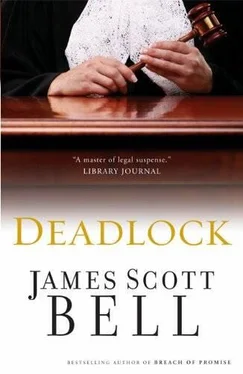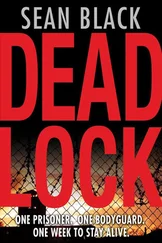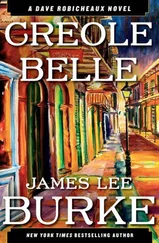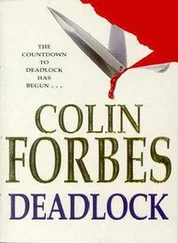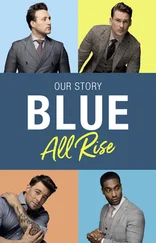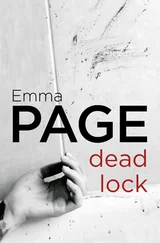“What do you mean by weaving?”
“There’s a verse in the Bible,” Holden said. “Romans 8:28. I’ve memorized it in several translations, but my favorite is from a man named J. B. Phillips. His version goes like this: ‘We know that to those who love God, who are called according to his plan, everything that happens fits into a pattern for good.’ I always liked that. God weaving a pattern. We can’t see the final product from here. But God can.”
“All right,” Millie said. “I’ll bite. What’s this pattern?”
“I’ll be blunt here. I think our country has fallen into spiritual darkness over the last fifty years. A large part of that has to do with our courts, I’m sorry to say. Do you want me to continue?”
Bristling, Millie said, “Go ahead.”
“You know, of course, that it was Justice William O. Douglas who wrote, in a 1952 opinion, that we are a religious people whose institutions presuppose a Supreme Being.”
Millie knew that to be true.
“But the courts have systematically removed that central tenet from public life. It is the crux of the Declaration of Independence. This country was founded on the belief that our rights come from the Creator.”
This was a familiar argument, though Millie had not heard it for some time. “What Jefferson meant by that has long been debated.”
“Debated by those who don’t wish to acknowledge its truth,” Holden said. “And when people say, well, it’s just an appeal to reason in deistic terms, that betrays an ignorance of the rest of the document.”
“How so?”
“In the last paragraph, Jefferson says America is appealing its cause to the Supreme Judge of the world. Capital S, capital J. And he asserts in the last line that the country is relying on the protection of Divine Providence. Capital D, capital P. No one then, absolutely no one, could have doubted that this was the God of the Bible. Now fast forward to 1980, and the Court holds that public schools cannot post the Ten Commandments. Does that make sense?”
“The development of Establishment Clause jurisprudence, as you know – ”
“Forget the legal jargon. Does it make sense?”
“With all due respect, First Amendment law is not jargon. And how can you possibly know if God is weaving anything?”
“I can’t know for certain,” Holden said. “But I’m willing to make you bet.”
“Bet?”
“Friendly, of course. Are you game?”
The hum of the car filled the silence between them. Millie said, “What’s the bet?”
“That God is not going to let you off the hook.”
Millie felt a jab to her insides, as if the car had hit a bump. But it hadn’t. “I don’t want to be on anybody’s hook, thank you. Nor do I wish to be a thread in some cosmic pattern. I just want to…”
Silence. What did she want? If nothing else, to get back to work. This desert communion was starting to unnerve her.
Millie jerked to consciousness and for a moment did not know where she was. Or the time.
The phone. It rang again.
Her mother’s house, of course. Her head throbbing, Millie scrambled off the sofa – now she remembered falling asleep there last night – and made it to the kitchen by the fourth ring.
“Justice Hollander?”
“Yes?”
“Hold for the president.”
President?
“Hello, Justice Hollander?” She heard the familiar Bostonian accent of the leader of the free world.
“Yes, sir.”
“John Francis.”
She knew that! “Yes, sir.”
“How you doing out there in the Golden State?”
He couldn’t know the half of it. “Fine.”
“Feeling better, are you?”
“Almost as good as new.”
“Great to hear it.”
She sat down to steady her nerves. She knew what was coming next, and felt oddly ambivalent about it. What a time to feel that way!
“I’m going to send you up as my pick for chief justice,” Francis said. “I don’t think that’s a shock to you.”
It wasn’t, but it felt the same. “I am… honored, Mr. President.”
“Well, you deserve it. You’ve been rock solid on the Court for ten years, and it’s about time we had a woman in charge of things over there. When will you be coming back to Washington?”
“I don’t really know.”
“All right. We’ll do some prep with you for the hearings, but those will just be going through the motions. You’ll have the usual conservative outrage, but we have the majority on the committee and in the Senate. No problemo , as they say down in Mexico.”
Millie closed her eyes. She was talking to the president of the United States. He was telling her she was going to be the chief justice. It was a waking dream.
“You do want the job, don’t you?” Francis added.
God is not going to let you off the hook.
Holden’s words bounced off the walls of her mind. She gritted her teeth against them. “Oh, yes, sir. Of course I do.” That had not changed. This opportunity was the culmination of everything she had worked for. What was changing, though she didn’t yet know how, was her. Surely getting back to Washington, back into the swing of things, would settle her down.
“Excellent,” Francis said. “Everything is falling into place nicely. The most important thing is that we keep our slim majority on the Court.”
“Sir, I – ”
“I know, I know. Ethics and all that. That’s why you’re the right person for the job. Now I have to go do a little soft shoe for the Sultan of Brunei. Nice talking to you, Chief. Congratulations.”
He hung up before she could say thank you.
She sat in amazed silence until the phone signal angrily told her to hang up. It had finally happened. The big dream she had dared to dream back in law school. Chief Justice Millicent Mannings Hollander.
Her body suddenly felt renewed. No miracle healing here, just a heightened sense of physical well-being.
She made coffee. It was nearly nine, and Jack Holden would be coming over soon to drive her to the hospital.
She had just stirred some cream into her coffee when the phone rang again. The president calling her back?
“Justice Hollander?”
“Yes?”
“Dr. Weinstein.” His voice was low, and Millie’s entire body tensed. “Are you coming up here?”
“Yes, what is it?”
“I’m so sorry,” he said.
As she passed through the rail at the front of the courtroom, Charlene saw Beau Winsor talking to someone who hadn’t been in the courtroom before. At first she thought he must be an associate from Winsor & Grimes, but then the face suddenly became familiar. It wasn’t quite the same as it looked on TV.
Winsor saw Charlene and motioned her over. “Charlene, do you know Larry Graebner?”
Graebner smiled and stuck out his hand. Charlene shook it.
Lawrence I. Graebner. Here. She knew he had been advising on this case. But she never thought he would make an appearance. Why would he? He wasn’t a trial lawyer. He was the brain. And if Charlene prevailed, he would be the counsel on appeal.
Why was he here today?
“I hear you’ve been giving Beau all he can handle,” Graebner said with the ribbing lawyers sometimes threw at their opponents.
“I hope so,” Charlene said.
Winsor said nothing. Charlene could almost smell the power, mixed with a generous dose of testosterone. They were two of the keenest legal minds in the country. And they were against her.
When Judge Lewis entered the courtroom and called the case, he smiled faintly at Graebner. And then it hit her. Lewis and Graebner had been classmates at Yale.
“Is the defense ready to proceed?” Lewis asked.
Читать дальше
